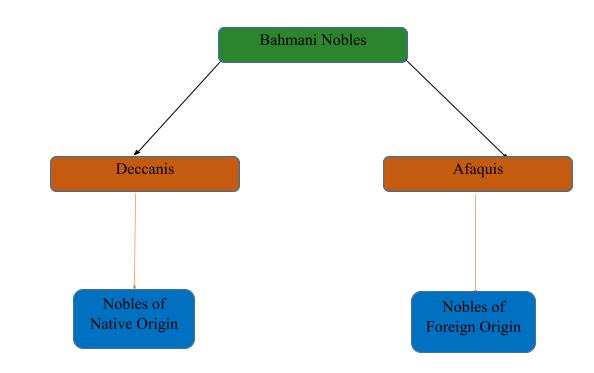PDF chapter test TRY NOW
The Rise of Bahmani Kingdom:
- The Fall of the mighty Vijayanagar empire witnessed the invasion of Bahmani Sultans to the southern territories who were ruling the Northern parts of Karnataka and the Deccan area until then.
- This kingdom was considered the “First Muslim South Indian Kingdom” which was established by “Alauddin Hasan Bahman Shah in \(1347\ AD\)”.
- Bahmani kingdom contained 18 Sultans who ruled over \(180\ years\), which marked various changes in the political history of South India.
- Bahmani kingdom was also credited for being a “bridge” between the cultures of North and South India.
Alauddin Bahman Shah / Hasan Gangu:
- Alauddin Bahman Shah ruled over the territories of Deccan from \(1347 – 1358\ 11\ years\). From the beginning of his carrier as the Deccan ruler, he was at loggerheads with the Sultan of Delhi, Mohammed- bin –Tughlaq.
- His tussle against the Delhi sultan found able support from the local Chieftains of the Deccan who supported Bahman shah for their political gains.
HASAN GANGU: Alauddin Bahman Shah according to historians was brought up and gained prominence under a Brahmin “Gangu”, so he is otherwise known as “Hasan Gangu”.
- On the Other side, Bahman Shah was constantly engaging in conflicts with the Vijayanagar rulers who were fighting over certain fertile lands of the Krishna – Godavari region.
- Gulbarga was the seat of Bahmani sultan during the initial phase of their rule which was later changed to Bidar in \(1425\ AD\). He had also divided his entire kingdom into four territorial divisions known as “Tarafs”.
- The Bahman nobles were split into two groups who had their own set of conflicts which led to the disintegration of the kingdom during the first half of the \(16th\ century\).

